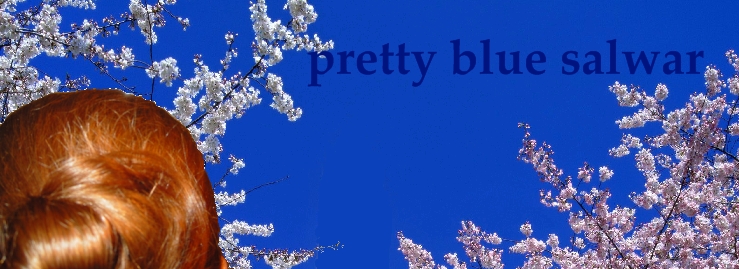Each day in our graduate directing seminar we are asked to bring in a piece of news, on the grounds that an artist should be continually aware of what's going on in the world.
A lot of the current events I've posted about on this blog have made it into class (particularly this one and, of course, this one).
Today, as the culmination of our current events project, our professor told us that the interesting thing about today's news (as opposed to 1930s German news or 1960s Russian news) is that no matter how awful the story, it no longer affects us. That is to say, it might "affect" us mentally (in that we think "oh, how terrible!") but it doesn't affect our day-to-day lives.
The two women in the class immediately piped up and said oh no, the recent Supreme Court ban on late-term abortion certainly affects us.
No, said the professor, that's all theoretical. You just think it affects you. It hasn't really changed the way you live your lives.
We were not able to convince the professor that any of the news we brought to class actually affected us in any way. Yet I would argue (and am going to argue, on this blog) that it does.
Sure, knowing that the Supreme Court just banned late-term abortion doesn't change my evening plans. It doesn't change the fact that I came home and said hello to my kitty and heated up yesterday's "bell peppers in a curry sauce." But, when I begin to start a family, it may become a very urgent issue.
And knowing that Allen Lee was arrested for writing an essay doesn't change the fact that I sat down to watch The Simpsons on Sunday evening. It did cause me to censor what I posted to this blog, though (as anyone with eyes clever enough to catch the differences between the first and second versions of this post noticed); and as someone who plans to continue teaching, it has made me stop and think "what would I have done in this situation?"
No, I won't be faced with an Allen Lee essay tomorrow (although technically I don't know kind of end-of-semester papers my students will hand in). But I might find myself reading one in two years.
Of course by then, the professor might argue, everything will have changed anyway.
So is the crux of the matter, then, that students (even graduate ones) are just too "removed from responsibility" to have these issues affect them in any day-to-day way? Perhaps. But I still disagree.
Let's take this current event: Micheal Winerip's recent essay on what it actually takes for a student to get into Harvard these days. It's a human interest story, to be sure, but note the details he gives us:
What kind of kid doesn’t get into Harvard? Well, there was the charming boy I interviewed with 1560 SATs. He did cancer research in the summer; played two instruments in three orchestras; and composed his own music. He redid the computer system for his student paper, loved to cook and was writing his own cookbook. One of his specialties was snapper poached in tea and served with noodle cake.It's the Red Queen Effect: It takes all the running you can do to stay in the same place. And you can bet that it affects my day-to-day life. Which is, btw, perhaps the reason why my particular generation is less inclined to, say, chain ourselves to a pillar of the Supreme Court Building to protest the recent abortion ruling, although we are vaguely (or presciently) aware that it does affect our lives and that in previous generations people might have done something about it.At his age, when I got hungry, I made myself peanut butter and jam on white bread and got into Harvard.
That is to say, we know that if we drop out of the race for even a moment, not only will we not get into Harvard, we might not get back into the race at all.
But this is not a new thought by any means, which leads me to believe that there might be another reason why we aren't taking the political action my professor reminds us was taken (by ordinary citizens!) in the halcyon days of the '30s and '40s.
Could it perhaps be, instead of the Red Queen Effect, the "Cindy Sheehan Effect:" the knowledge that protests, even well-organized, persistent ones by large groups of people and headed by a charismatic individual, no longer have the possibility to enact any significant change?



2 comments:
Although, I would argue that the network's effect of mediating and influencing outcomes, i.e., the Macacca effect can be read as activism, even if it is of a tepid kind. At a more social scale, however, given that we don't belong anywhere here, it is hard to get hot and bothered, and further act upon abstract political idiocies such as the abortion issue; political action can follow only from large cohesive social groups (e.g., network of black community churches during civil rights era, Gandhi's political organizing ability etc)
I disagree with your professor.
I think that if I were in the military, the daily news would have affected me significantly, particularly when Bush announced we were sending troops over.
But, there are instances when everyday events DO in fact affect how I live my life: there's a bar I used to frequent (not all that often, but every once in a while) outside of which a gay guy got beaten up just for being gay. I've stopped going to that bar, for example.
There are also those people who stop eating eggs when the FDA announces eggs are poisonous or spnich when it may have E coli.
Post a Comment